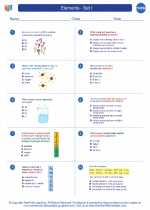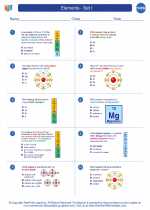Civil Engineering
Civil engineering is a professional engineering discipline that deals with the design, construction, and maintenance of the physical and naturally built environment, including works such as roads, bridges, canals, dams, and buildings. It is one of the oldest engineering disciplines and encompasses many specialized fields, including structural engineering, geotechnical engineering, transportation engineering, environmental engineering, and more.
Key Concepts
- Structural Engineering: The design and analysis of structures such as buildings, bridges, and tunnels to ensure they are safe and capable of withstanding the intended loads and environmental conditions.
- Geotechnical Engineering: The study of soil and rock mechanics to assess the stability of foundations for structures and earthworks such as embankments and tunnels.
- Transportation Engineering: The planning, design, and operation of transportation systems including roads, highways, railways, and airports to ensure efficient and safe movement of people and goods.
- Environmental Engineering: The application of engineering principles to protect and improve the environment, including water and air quality, waste management, and sustainable development.
- Construction Engineering: The management and coordination of construction projects, including scheduling, budgeting, and quality control.
Study Tips
Studying civil engineering requires a strong foundation in mathematics, physics, and engineering principles. Here are some tips to excel in this field:
- Master the fundamentals: Understand key concepts in structural analysis, fluid mechanics, and materials science.
- Practice problem-solving: Solve a variety of engineering problems to improve your analytical skills and understanding of real-world applications.
- Stay updated: Keep abreast of the latest developments in construction materials, technologies, and sustainable practices.
- Work on projects: Gain practical experience through internships, co-op programs, or personal projects to apply theoretical knowledge to real-world scenarios.
- Collaborate and network: Engage with professors, professionals, and peers to exchange ideas and gain insights into different aspects of civil engineering.
Further Reading
For further exploration of civil engineering, consider reading the following recommended books:
- "Civil Engineering: A Very Short Introduction" by David Muir Wood
- "Fundamentals of Geotechnical Engineering" by Braja M. Das
- "Transportation Engineering: An Introduction" by C.J. Khisty and B.K. Lall
- "Environmental Engineering: Fundamentals, Sustainability, and Design" by James R. Mihelcic and Julie B. Zimmerman
◂Chemistry Worksheets and Study Guides High School. Elements - Set I
Worksheet/Answer key Elements - Set I
Elements - Set I  Worksheet/Answer key
Worksheet/Answer key Elements - Set I
Elements - Set I  Worksheet/Answer key
Worksheet/Answer key Elements - Set I
Elements - Set I 

 Worksheet/Answer key
Worksheet/Answer key
 Worksheet/Answer key
Worksheet/Answer key

The resources above cover the following skills:
PHYSICAL SCIENCE (NGSS)
Matter and Its Interactions
Students who demonstrate understanding can:
Use the periodic table as a model to predict the relative properties of elements based on the patterns of electrons in the outermost energy level of atoms.
Plan and conduct an investigation to gather evidence to compare the structure of substances at the bulk scale to infer the strength of electrical forces between particles.